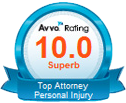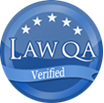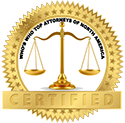On Behalf of Adler Law Group, LLC
Given the ever-increasing amount of large truck traffic on the main thoroughfares in Connecticut, you might think most truck crashes occur in urban areas or on the interstate.
Various factors come together to cause truck-car accidents, and as a result, these crashes do not necessarily happen on major highways.
Common causes
Poor weather or road conditions often contribute to vehicle crashes. A commercial truck driver travels long distances and may remain on the road for 11 hours or more at a stretch. Driver fatigue can result and is a primary cause of truck accidents. Cargo overloading is another problem since this makes a truck difficult to control. Rollovers are a frequent result of overloading. Reckless driving, alcohol or drug use and worn-out brakes or other components are other reasons behind large truck crashes.
Primary locations
The majority of truck crashes occur on rural roads during daylight hours. Drivers tend to exceed the speed limit in rural locations. They might cross the center line and are often driving too fast to avoid a deer or other animal crossing the road.
Potential injuries
The occupants of smaller vehicles usually suffer the worst injuries in a truck-car crash. Common injuries include:
- Crushing injuries
- Spinal injuries
- Paralysis
- Burn injuries
- Traumatic brain injury
- Deep lacerations with profuse bleeding
Financial help
Accidents in rural locations are especially concerning since it will take longer for emergency personnel to arrive at the scene and take the injured to the hospital. Injuries resulting from a truck-car crash may require lifelong care. However, the victims have the right to pursue fair compensation to cover current and future medical expenses, pain and suffering and more.
3 categories of TBI symptoms
On Behalf of Adler Law Group, LLC
After a serious motor vehicle collision, individuals might struggle with devastating injuries and medical conditions. In many instances, these consequences are life-altering. A traumatic brain injury (TBI), for example, can dramatically impact the personal and professional lives of the injury victim as well as his or her entire family.
A TBI might be a difficult condition for medical professionals to diagnose as the symptoms do not always align with the severity of the injury, the medical history of the individual or the impact of the collision. In fact, medical professionals classify TBI symptoms in three categories:
- Physical symptoms: In a TBI, the physical manifestation of damage often comes in the form of perceptive challenges such as blurred vision or ringing in the ears. Additionally, victims might struggle with headaches, nausea and the loss of balance.
- Cognitive symptoms: After a serious head injury, cognitive challenges could come in the form of memory impairment, brief losses of consciousness and persistent disorientation.
- Emotional symptoms: Symptoms can also include a strong emotional component including personality changes, mood swings and persistent irritability. Individuals might also experience conditions such as depression or anxiety.
While every injury is unique, individuals often suffer similar, overlapping symptoms. In fact, it is not uncommon for the victim of a serious TBI to exhibit symptoms covering all three categories. Following a serious motor vehicle collision, it is imperative that all vehicle occupants receive a thorough medical evaluation.
Often, the head trauma shows no visible signs of damage such as lacerations, bruising or swelling. It is possible that the injury is completely internal, mostly impacting the brain’s function rather than structure. In these situations, the diagnostician must carefully examine the injury using neurological tests. The injury victim must identify and list all symptoms across any classification to aid the doctor in a proper diagnosis and course of treatment.
Three tips to be a defensive driver
On Behalf of Adler Law Group, LLC
From inattentive drivers to wild animals, many hazards on the road can lead to costly and painful collisions.
Following these defensive driving tips will help you remain prepared to take preventative action to avoid accidents.
1. Stay focused on the road
Distracted driving leads to many avoidable accidents. Silence your phone or put it out of reach while driving and limit drinks and snacks to items that do not require you to look away from the road. Keep your focus on the task of driving so that you can spot and avoid hazards.
2. Do not rely on other drivers to keep you safe
In a perfect world, everyone would drive safely and be respectful of others. In reality, your safety is your responsibility when you are behind the wheel. Wait an extra moment at stoplights to make sure crisis traffic has stopped. Leave extra space between you and the vehicle ahead of you, especially in poor weather conditions. Be proactive about your safety when driving and stay out of others’ blind spots.
3. Look out for hazards
Defensive drivers are vigilant about looking for safety hazards so that they can avoid them. Watch for aggressive drivers and those who change lanes often. If you are driving in a rural area, keep an eye out for wild animals darting into the road. Use high beam lights at night to give yourself a bigger field of vision, but remember to turn them off when facing oncoming traffic so that you do not blind other drivers.
Defensive driving does not mean aggressive driving. Remain calm in all situations while behind the wheel of a car to avoid instances of road rage. Plan ahead for every trip to reduce the temptation to speed or drive recklessly.
Overcoming challenges after the loss of a limb
On Behalf of Adler Law Group, LLC
The horrific highway crash left you uncertain about your life. Your injury is a permanent one that forces you to immediately adapt and relearn many of the everyday tasks that people take for granted. While surgeons saved your life, they had to amputate your right arm below the elbow.
You understand the medical costs and rehabilitation and the chance that you may have to find another career. The pain and suffering, too, likely will never go away. But now, you must adapt to this abrupt change. Challenges await you because of the negligence and recklessness of another driver.
Therapy, pain and relearning
When a person loses a limb, there really is little time for transition. Accept what happened and soldier on to overcome challenges that may include :
- A number of surgeries: The first one likely was to save your life. Others may take place to get fitted with a limb. Remember, complications may surface during any surgery.
- Extended hospital stays: Lengthy periods in the hospital are not unexpected. There could be multiple times of admission.
- Psychological trauma: You may face lifelong mental health issues, including post-traumatic stress disorder.
- Ongoing therapy: This ranges from physical and occupational therapy as well mental health therapy. You need this healing help.
- Becoming accustomed to a prosthetic limb: Once fitted for a new limb, you will work closely with therapists to get used to it.
- Relearning everyday tasks: Whether it is walking, driving, dressing, eating or brushing teeth, you likely must relearn many activities.
- Continuing pain: It is possible to suffer pain at the wound site. You also may experience “phantom limb” pain.
The outcome was not of your choice, but you must cope with your situation as best as you can. You have the ability to do so.
Face the challenges
The loss of a limb after a motor vehicle accident will lead to many changes and challenges in your life. Face those challenges, do your best to overcome them and always look ahead.
On Behalf of Adler Law Group, LLC
Many pet owners worry about their pets getting injured or ill when left at a boarding facility. However, sometimes boarding your pet is necessary.
Who is responsible for the bill if your dog gets sick at the kennel?
Assumption of risk
A recent outbreak of kennel cough, a highly contagious upper-respiratory illness that affects dogs, prompted one local kennel to pay the vet bills of more than 50 dogs that got sick after staying at the business. However, not all kennel owners are so willing to cover thousands of dollars in veterinary bills.
Most boarding facilities require owners to provide proof of vaccination against kennel cough and other diseases and sign a contract that includes a waiver of liability. This can make winning a case against a kennel difficult for pet owners.
Legal responsibility of kennels
Connecticut law requires kennel owners to maintain safe and structurally sound kennels and provide isolation facilities for dogs quarantined or under treatment for contagious diseases. Additionally, kennels must confine dogs in separate cages.
For pet owners to hold kennels liable for an injury or illness to a pet, the pet owner must prove that the kennel owed a duty that it breached and that the breach of duty resulted in the injury or illness.
Proving that a kennel breached a duty and that the breach caused your dog to get sick can be difficult. However, if you can prove your case, it may be possible to collect damages, such as the cost of your veterinary bills.
Drive safely in snow and ice this season
On Behalf of Adler Law Group, LLC
Serious snowstorms significantly increase the risk of auto accidents. If you need to travel on Connecticut highways with snow and ice in the forecast, safe strategies can help lower this risk so you reach your destination safely.
Review these snow and ice driving tips as winter weather approaches.
Prep your vehicle
Before you set out, make sure your car has plenty of gas. Check the heater, windshield wiper fluid, brake fluid, and headlights. Replace your tires if they do not have enough tread. If necessary, clear snow off all the surfaces of your vehicle. Pack a flashlight, shovel, sand, and flares in case you get stuck.
Plan your trip
While you might consider taking back roads to avoid other vehicles, these routes are less likely to be clear. Stick to main roads since the state plows these first.
Instead, try to time your trip so you do not have to travel during rush hour. If you have to go to work, ask your employer about flexible hours. No matter where you have to go, give yourself plenty of time to get there.
Know how to react
If your car slides on ice or another slippery surface, do not brake hard, as this can cause you to lose control of the vehicle. Take your foot off the accelerator and the brake, letting your car “drift” through the icy area. When you need to stop, leave plenty of space and use a slow, steady pressure.
If you or a loved one experiences a serious auto accident injury, you can pursue legal compensation if another driver’s actions caused the collision.
On Behalf of Adler Law Group, LLC
Now that friends and family are more likely to be on the other side of the country than on the other side of the street, sharing news on social media is simpler. Instead of calling or texting your loved ones, you can make one post and know that most of your friends and family will get the information.
One of the challenges that come with more social media is learning what to post and when. When it comes to a car accident, the wrong post on social media could create challenges.
Here’s why posting about your accident on social media could be a mistake.
Here’s what you should know before you post about your accident on social media.
When in doubt, don’t post
In many cases, courts consider social media posts public, even if you have a privacy setting applied to the post. Unfortunately, screenshots allow anyone to share a post, whether that was your intent or not. Also, when you reply to comments, you could say something that could work against you.
Once you have a resolution to your car accident claims and you have had a chance to heal, you can post an update for more distant friends and family. However, it is better to leave discussions of your car accident off of social media.
No pictures, please
Pictures of your accident will tell a story, but you do not want the wrong people deciding how to tell the story. You can make sure photos do not get into the wrong hands by sharing pictures with friends and family outside of social media posts.
Use caution with other posts, too
Keep in mind, posts about your accident are not the only types of social media posts that could create problems for your car accident claim. Posts about your activities could also create a problem if they could raise questions about your injuries.
A post about your weekend activities may seem irrelevant. Still, if the activity appears to conflict with your injuries, it could be problematic, especially if it conflicts with the timeline of your accident or injuries.
Protection for victims of dog bite attacks
On Behalf of Adler Law Group, LLC
Victims who are unexpectedly bit and injured by a dog can suffer grave physical and emotional damages and can also suffer financial damages as well. For that reason, victims and their families should be aware of how the law protects them and the remedies that may be available to help them.
Dog bite liability in Connecticut
Connecticut dog bite liability law is described as strict liability. This means that the owner of a dog is responsible for the harm the dog caused regardless of if they know of the dog’s vicious propensities or were otherwise negligent. Dog owners are strictly liable for dog bites, attacks and injuries suffered by victims on property other than that of the dog owner. If the victim was trespassing at the time of the dog attack, or tormenting, teasing or abusing the dog at the time of the dog attack, the dog owner may not be liable for their damages.
Dog bite liability law provides expansive protections for victims injured by a dangerous or aggressive dog. Even if the dog does not seem dangerous or aggressive, if it injures the victim, the dog owner may be liable for their damages. Dog attack victims can suffer physical injuries that may require extensive medical treatment and care. A claim for damages may help the victim recover compensation for their physical, financial and emotional injuries.
Being injured by a dog can leave physical and emotional trauma for the victim to deal with. Because of that, it is helpful for victims of dog attacks and their families to be familiar with the legal resources and protections available to help protect them.
Steps to take while recovering from a brain injury
On Behalf of Adler Law Group, LLC
If a sudden blow or jolt occurs to your head in a car accident or in another type of accident, you could sustain a traumatic brain injury. These injuries can result in a variety of symptoms ranging from irritability and sensitivity to light to mood changes and problems sleeping.
Brain injuries are common – the Brain Trauma Foundation states that every year, approximately 2.5 million people sustain a brain injury. If you are one of the many every year trying to recover from this type of injury, there are steps you should take to enhance this process.
Right after the accident
Right after the car accident, plan to take it easy for several days and get plenty of rest. You may need to take some time off of school or work so you do not overextend yourself and slow the recovery process.
As you begin feeling better
When you start feeling better, you can gradually begin returning to your normal activities. However, you should refrain from strenuous activities that could aggravate your symptoms or result in another TBI.
When symptoms start to fade
Once your symptoms start to go away, you can increase your participation in normal activities. If you notice that your symptoms get worse doing certain things, cut back on them for an additional period of time.
The symptoms of brain injuries vary from person to person and so do recovery times. Although some symptoms may appear right after the accident, others may show up days or even weeks following the accident.
On Behalf of Adler Law Group, LLC
If you have endured the misfortune of a motor vehicle accident, you recognize there are no minor collisions. Every accident is disruptive of your routine in addition to being extremely distressing.
Obviously, some accidents are more significant than others. Fender benders may not even involve calling the police. Then, there are other accidents in which serious damage occurs to your vehicle and you might suffer physical harm.
No collision is more serious than those involving intoxicated drivers
There are no accidents the state of Connecticut takes any more seriously than those involving a drunken or impaired driver. If you suffer an accident with an intoxicated motorist, the penalties and responsibilities the other party faces are major.
There are important steps to take after an accident with a drunk driver
In the immediate aftermath of a crash involving a drunken driver, you may not recognize the impairment of the other individual. When the moment comes that you do realize there is a possibility of intoxication, there are important steps you should take immediately:
- Check on the well-being of everyone involved. This may be the point at which you suspect impairment.
- Contact first responders and paramedics as necessary and absolutely call the police.
- Obtain the other driver’s license number, identification, contact details and insurance information. It is not unheard of for intoxicated people to attempt to leave the scene of an accident.
- Cooperate completely with law enforcement officers.
- Share all information promptly with your insurance company.
By law, no intoxicated or impaired person can lawfully drive in Connecticut. They are much more likely to perform erratically and thus cause an accident.



















